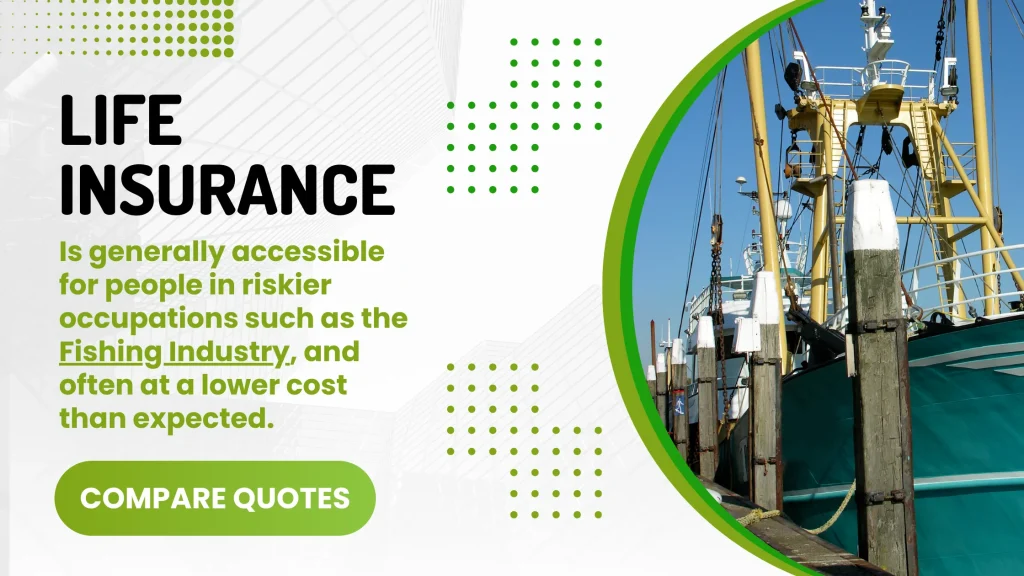
Fishing has been a means of obtaining food for thousands of years; it started as a main means of survival and has grown into a lucrative business in recent decades.
The FAO reports that upwards of 38 million fishermen work in the commercial trade, and many of these individuals are involved in off-shore and deep-sea fishing.
When it comes to life insurance, an individual’s occupation can affect the type of coverage and premiums available.
Why Purchase Life Insurance?
In many cases that Claybrooke deals with, clients purchase life insurance to protect their family if they financially—the primary breadwinner—pass away.
In some cases, individuals purchase life insurance on the recommendation of an advisor, such as a mortgage broker or other professional.
Regardless of the reason, life insurance provides someone with peace of mind that final expenses will be taken care of and that the family will be financially secure in the event he or she passes away earlier than expected and can no longer provide income.
Is Life Insurance for Fishermen More Expensive?
For some insurance companies, individuals who hold what is considered a “high-risk” occupation can be seen at a greater risk of making a life insurance claim.
In this case, the insurance company might charge the policyholder a higher premium to offset the perceived risk.
Click To Compare QuotesIn most cases, being a fisherman is not considered “high risk” and these individuals should be able to secure a life insurance policy with the same terms and premium payments as someone who works a desk job.
It is important to remember, however, that each insurance company is different, and how the profession is viewed may also vary.
Be upfront with the insurance agent you are working with and answer all questions honestly.
This will help the company better understand the type of fishing being done and how often you may be working offshore; the answers to these types of questions will help the agent best determine the premium payments they will charge you as a policyholder.
If My Occupation Changes, Can I Change My Policy?
In some cases, people work as fishermen in their younger years and then retire or change occupations when they are older.
If you took out a policy when you were a fisherman, maybe with a higher premium, and then changed jobs, you can change your insurance policy accordingly.
While this is the simple answer, it is important to remember that caution should be exercised when switching one life insurance policy for another since your circumstances may have changed.
For example, if you took out a policy when you were younger and in good health and have since developed an illness, it may be difficult for you to purchase a new policy or find a policy that does not include high premium payments.
If you are changing policies because you have been offered a lower premium payment, compare apples to apples and get the same amount and type of coverage as your existing policy. This will help to ensure nothing falls through the cracks.
Should I Consider a Joint Life Insurance Policy?
Consider a joint life insurance policy if you want life insurance for yourself and your partner.
Your unique needs and financial circumstances will determine whether this is the right policy for you.
Click To Compare QuotesA joint policy is excellent because you will only make one premium payment. Still, when one partner dies, the policy will only pay for that policyholder, meaning there will be no payout when the other dies.
If you choose to have two life insurance policies, one for each partner, you will pay two premium payments every month.
If this works with your financial situation, it is beneficial since each partner will have a policy that pays out upon his or her death to beneficiaries, whether that is the other partner or children.
In the event that both partners should pass away, say in a tragic car accident, both policies would pay out, offering beneficiaries double the financial support in their time of need.
Two life insurance policies offer more coverage but can be twice as expensive in premium payments.
